Scarsdale Schools by the Numbers: District Reviews Data on Assessments and Student Performance
- Category: Schools
- Published: Wednesday, 25 October 2023 11:21
- Wendy MacMillan
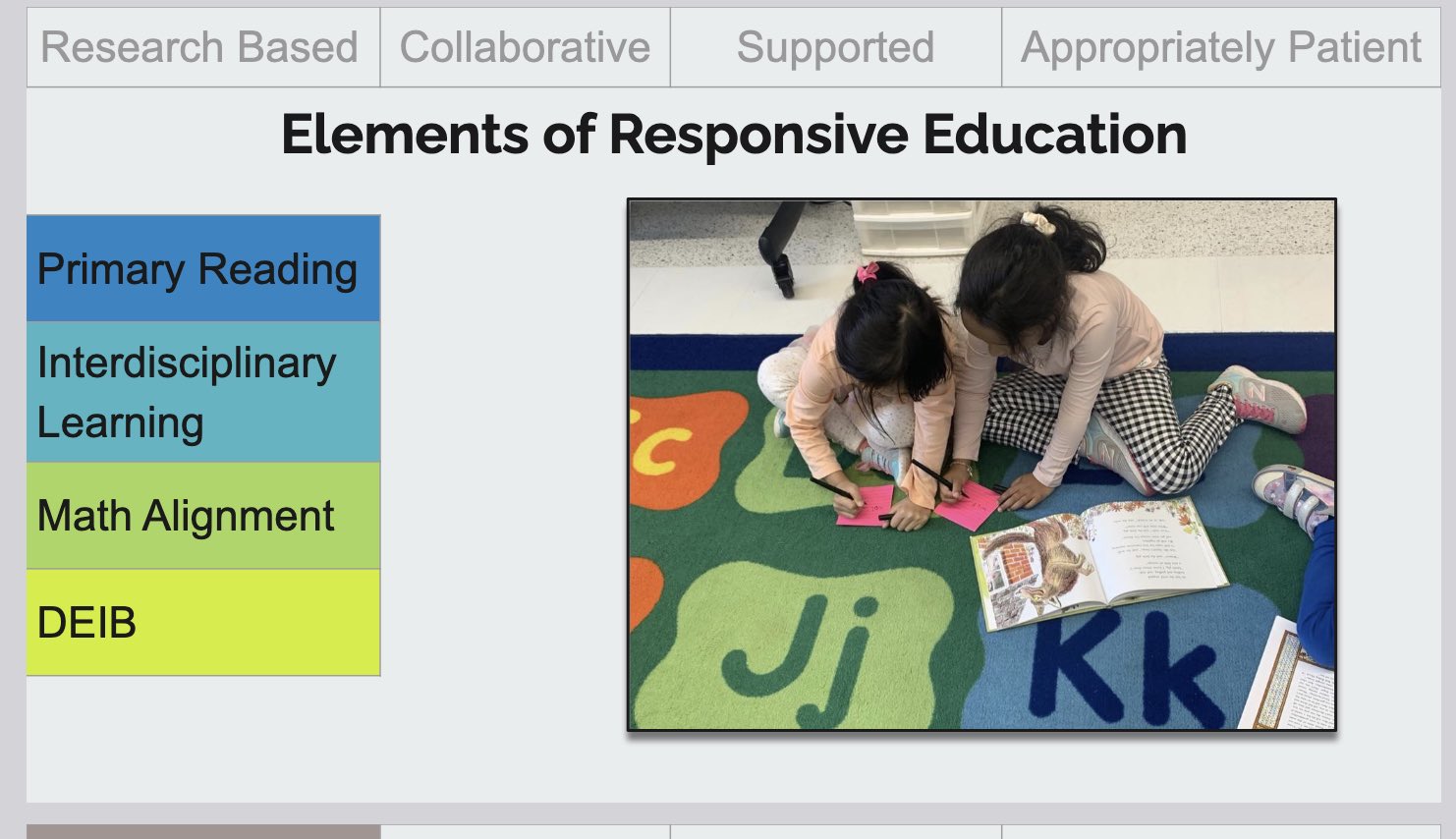 Radio host Garrision Keillor from the long running show about a fictional Minnesota town called Lake Wobegon, often described the town as a place “where all the women are strong, all the men are good-looking, and all the children are above average.”
Radio host Garrision Keillor from the long running show about a fictional Minnesota town called Lake Wobegon, often described the town as a place “where all the women are strong, all the men are good-looking, and all the children are above average.”
Perhaps the same can be said about Scarsdale.
Assistant Superintendent Edgar McIntosh reviewed the data on testing and college admissions for the Scarsdale School District on Monday night October 23, 2023, and the results are remarkable.
He opened by saying, "State assessments are just a small tip of the iceberg of the ways we assess our students… [There are a] multitude of ways we assess, monitor, and evaluate our student performance through common benchmark assessments, formative assessments, progress monitoring tools, and performance assessments. These assessments are much more meaningful than the snapshot these assessments provide. Performance assessments especially, provide us with information about how our students are progressing in the learning not easily captured in a standardized testing format. I look forward to highlighting some powerful performance assessments in an upcoming education report.”
 Dr. McIntosh further explained, “Second, icebergs can be dangerous to unsuspecting ships. The interpretation of these snap-shot measures which lead to generalizations about schools, grades, and instruction is misguided. The purpose of this is to underscore that our schools are all well above state and lower Hudson averages- and have historical fluctuations of percentage points between schools. The reason for fluctuations that have happened predictably from year to year can be explained through the learning needs of a particular cohort, the number of students assessed, and other factors. They should not, as I mentioned, be interpreted to be a measure of curriculum attention or instruction at any given school, regardless of current “order”."
Dr. McIntosh further explained, “Second, icebergs can be dangerous to unsuspecting ships. The interpretation of these snap-shot measures which lead to generalizations about schools, grades, and instruction is misguided. The purpose of this is to underscore that our schools are all well above state and lower Hudson averages- and have historical fluctuations of percentage points between schools. The reason for fluctuations that have happened predictably from year to year can be explained through the learning needs of a particular cohort, the number of students assessed, and other factors. They should not, as I mentioned, be interpreted to be a measure of curriculum attention or instruction at any given school, regardless of current “order”."
However, after stressful years of interrupted and remote learning during the pandemic, it appears that the district is on track and students are thriving.
The numbers demonstrate that elementary and middle school students are doing well on state reading and math tests, high school students are scoring high on SAT, ACT and AP tests, and despite the competitive landscape for college admissions, many are getting into “the list of 87 most competitive colleges and universities.
McIntosh said, “Students continue to demonstrate high levels of achievement,” and displayed the following charts to illustrate student success.
Below are some highlights from his presentation. You can view it online here.
You can also delve into more of the data here:
In the second part of his Education Report, Dr. McIntosh detailed the thoughtful and meaningful ways in which the district approaches changes to curriculum. He explained that Responsive Education creates meaningful improvement in curriculum, instruction, and assessment for student learning and is an approach that is based on research and allows administrators and teachers to be properly trained, and to have time to adapt and to review. What's more, Responsive Education embodies four important elements and maintains that change should be Research Based, Collaborative, Supported, and Appropriately Patient.
Dr. Mcintosh gave a highly detailed overview of how our district has had great success using the Responsive Education approach in the areas of Primary Reading, Interdisciplinary Learning, Math Alignment, and DEIB. For the full report click here:
In a later conversation, Dr. McIntosh stated, “The most impactful and student-centered change in curriculum, assessment, and instruction happens through a deliberate process that involves research, external and internal, meaningful collaboration (especially among and with those educators closest to the work), support (resources, time, encouragement, "bandwidth"), and an appropriate amount of patience.” He also added, “We are on the cusp of dedicating time to the strategic plan and know that, as we look to prepare our students for a changing world, recommendations will be made connected to instruction, assessment, and curriculum. It is important we are responsive in our approach.”
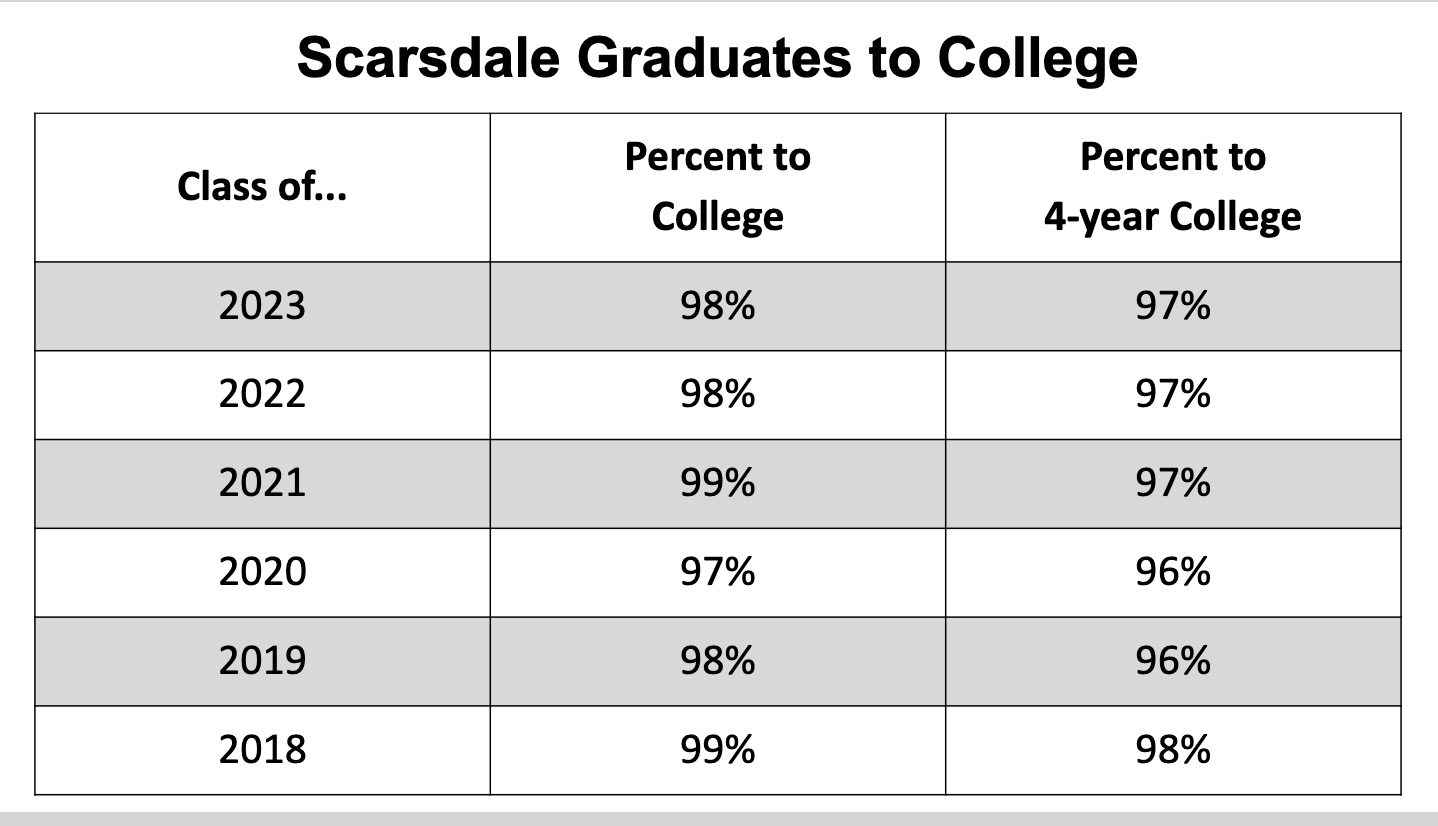 98% of SHS Graduates go to Four Year Colleges
98% of SHS Graduates go to Four Year Colleges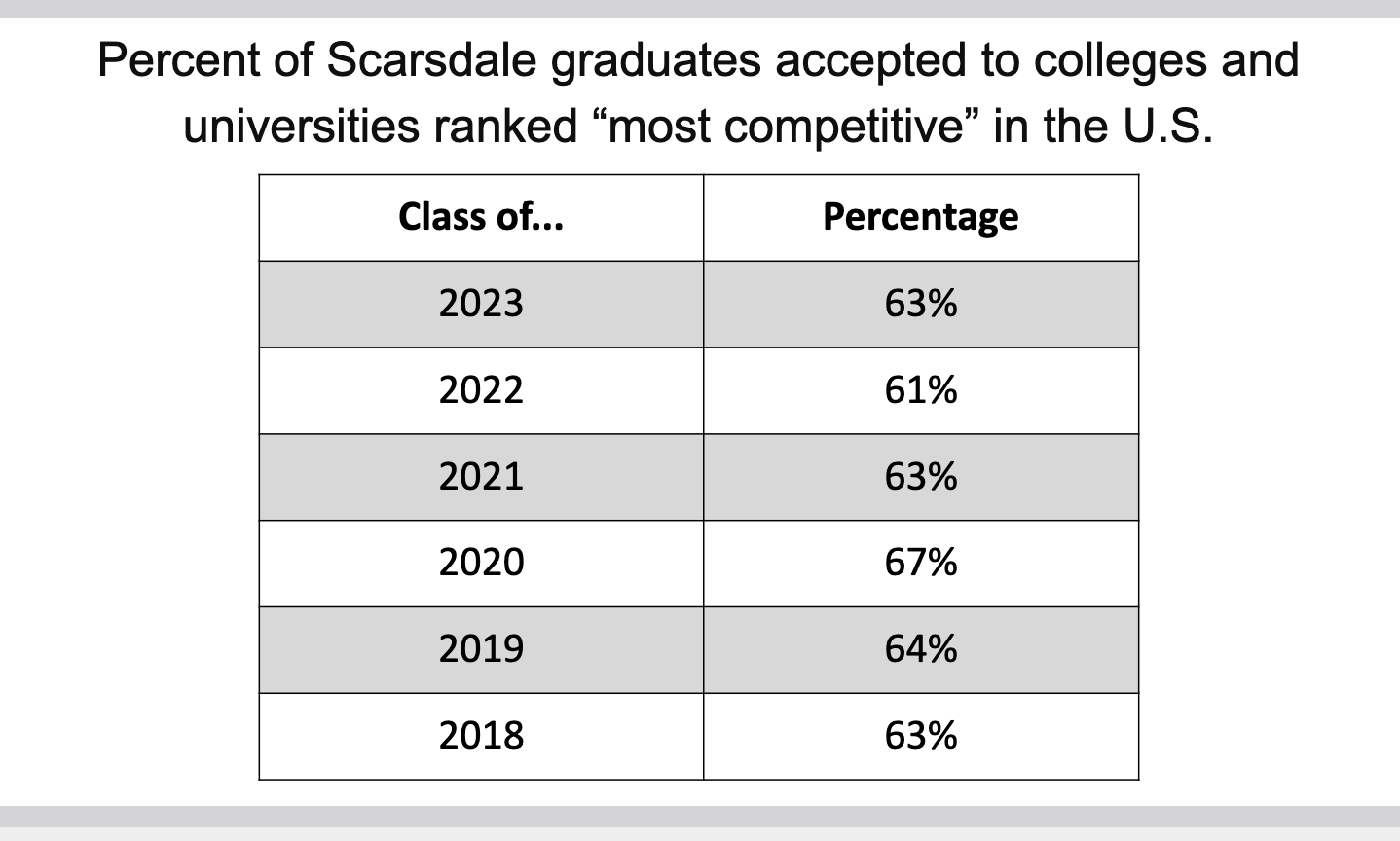 63% of high school graduates attend the most competitive schools.
63% of high school graduates attend the most competitive schools.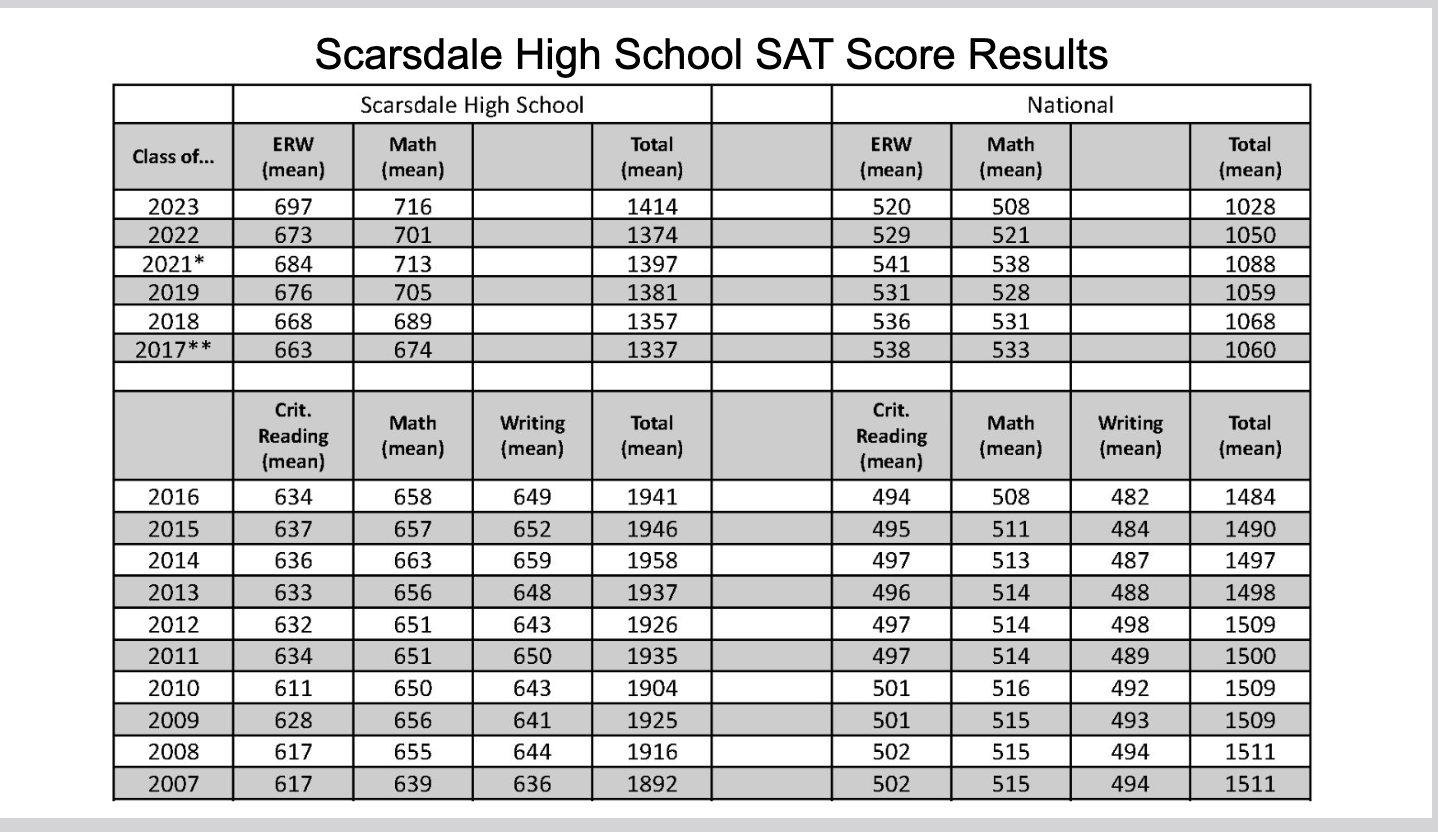 SAT scores are remarkable.
SAT scores are remarkable.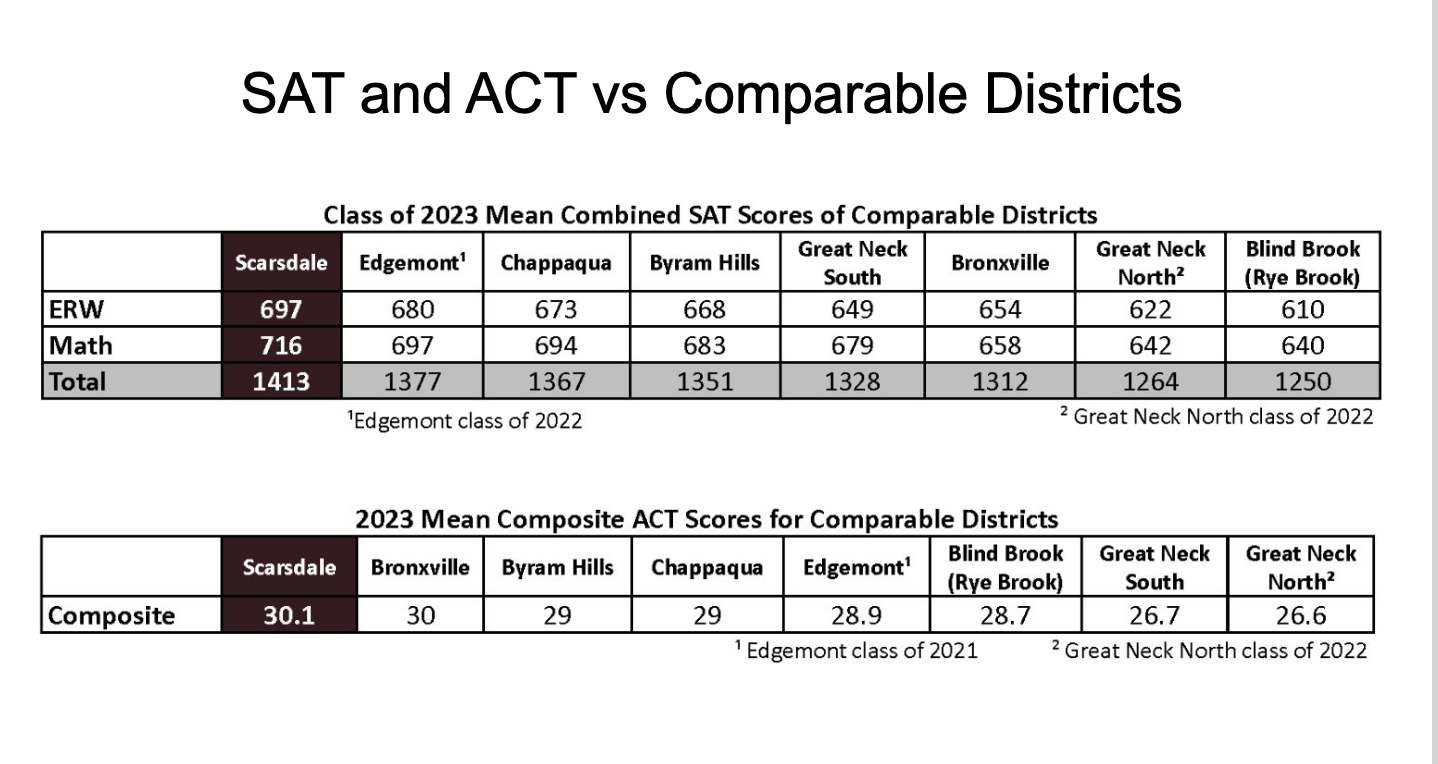 Students at SHS outperform comparable districts on SAT and ACT tests.
Students at SHS outperform comparable districts on SAT and ACT tests.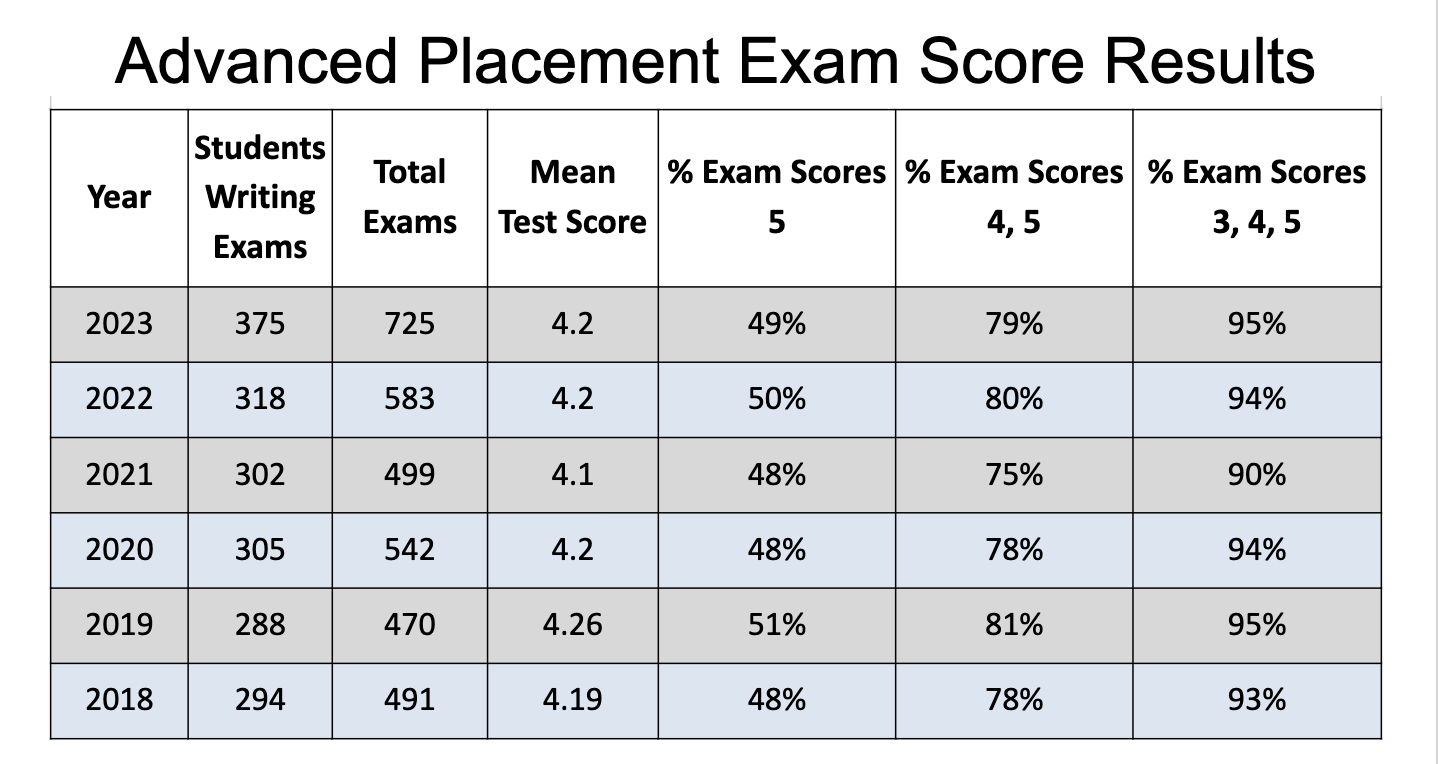 Students are continuing to take AP tests and do well on them.
Students are continuing to take AP tests and do well on them.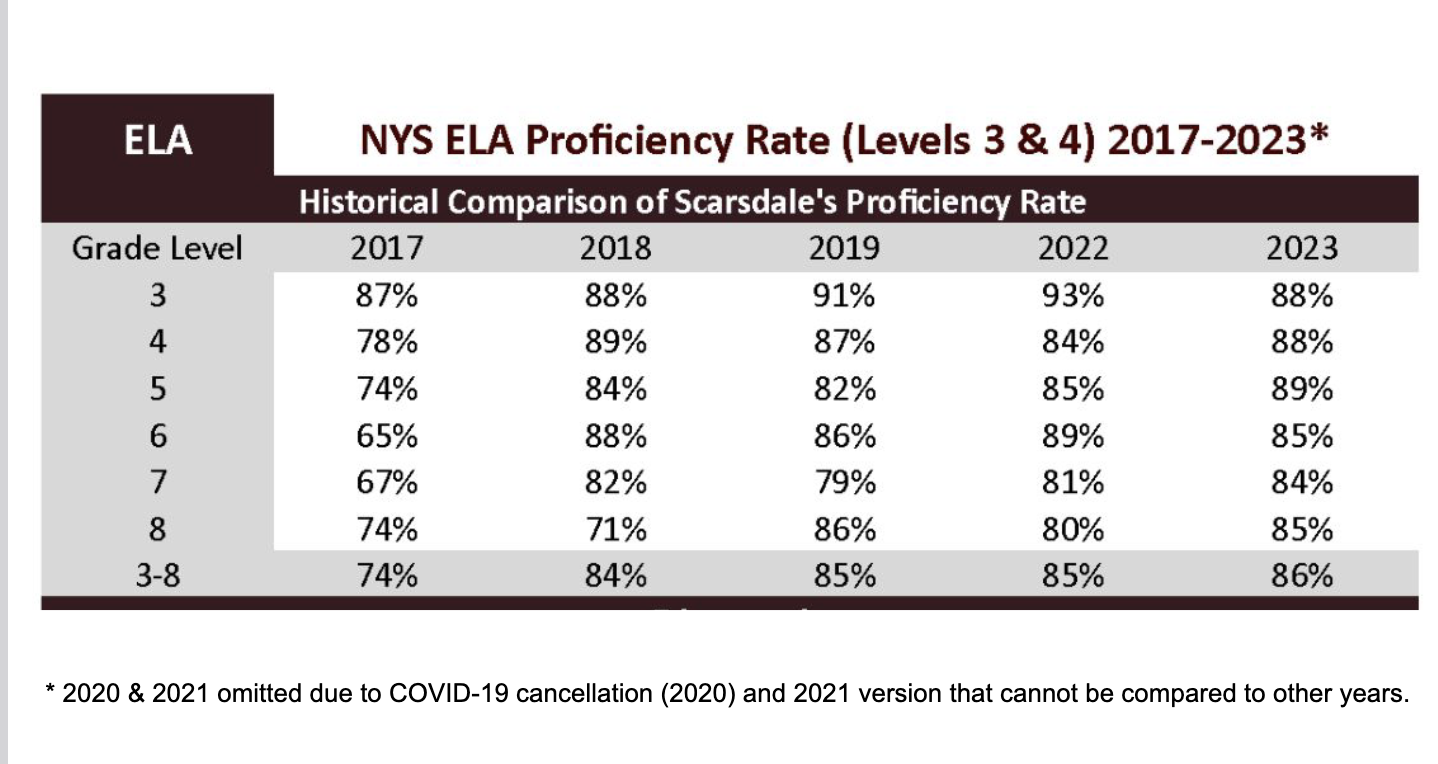 Year over year ELA results for grades 3-8.
Year over year ELA results for grades 3-8.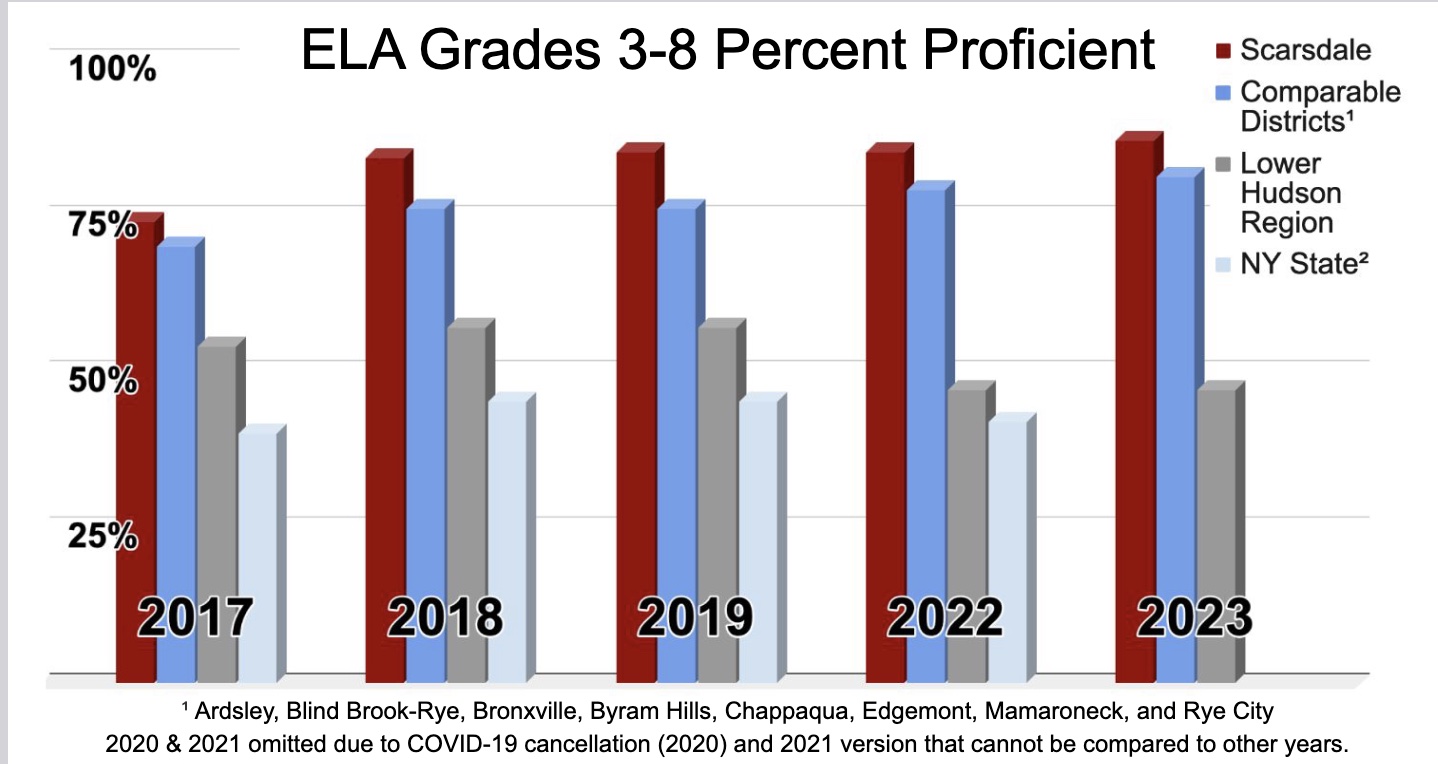 Scarsdale students test well in comparison to those at comparable school districts and those at the lower Hudson Valley schools.
Scarsdale students test well in comparison to those at comparable school districts and those at the lower Hudson Valley schools.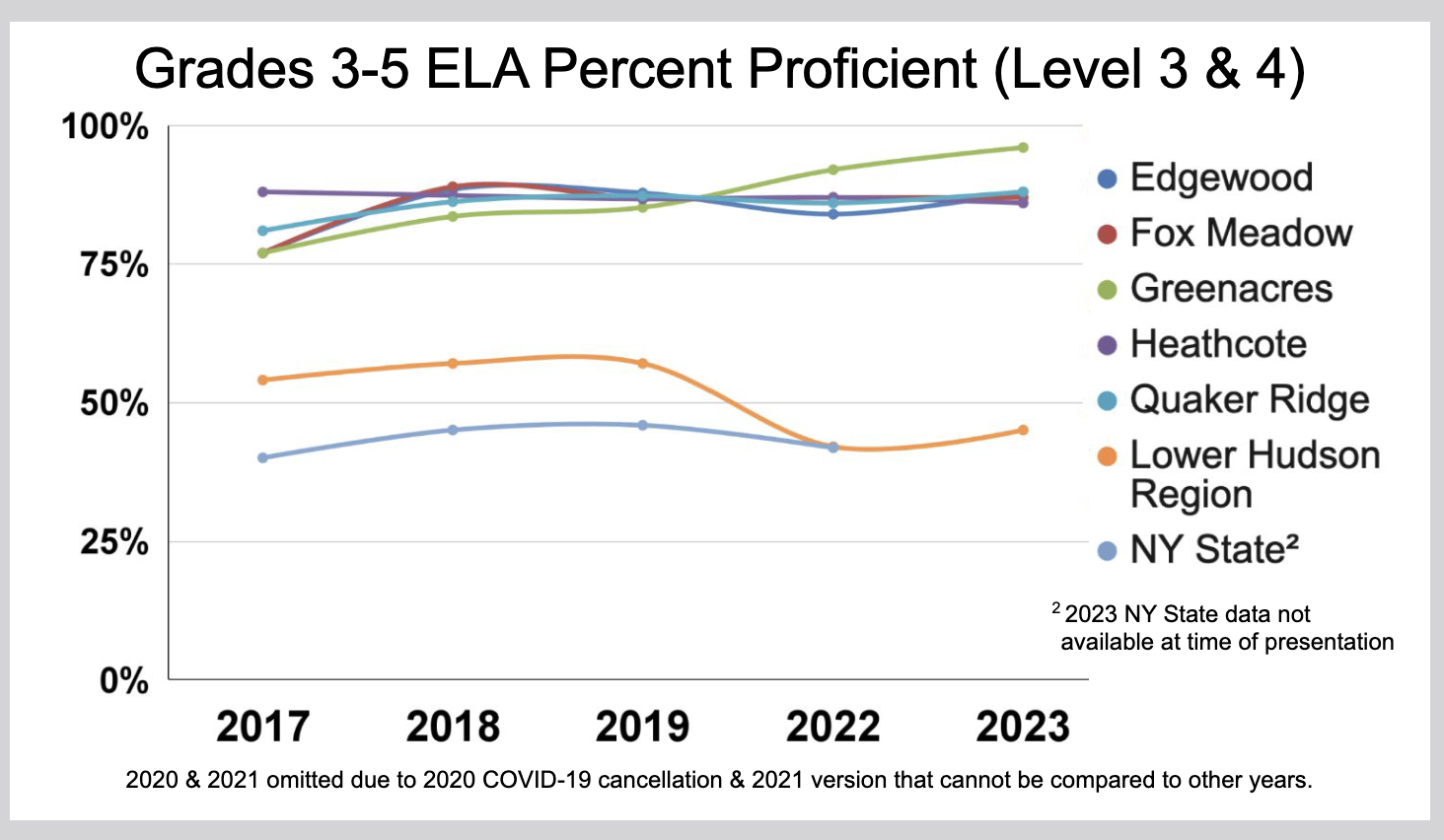 ELA results by elementary school and year.
ELA results by elementary school and year.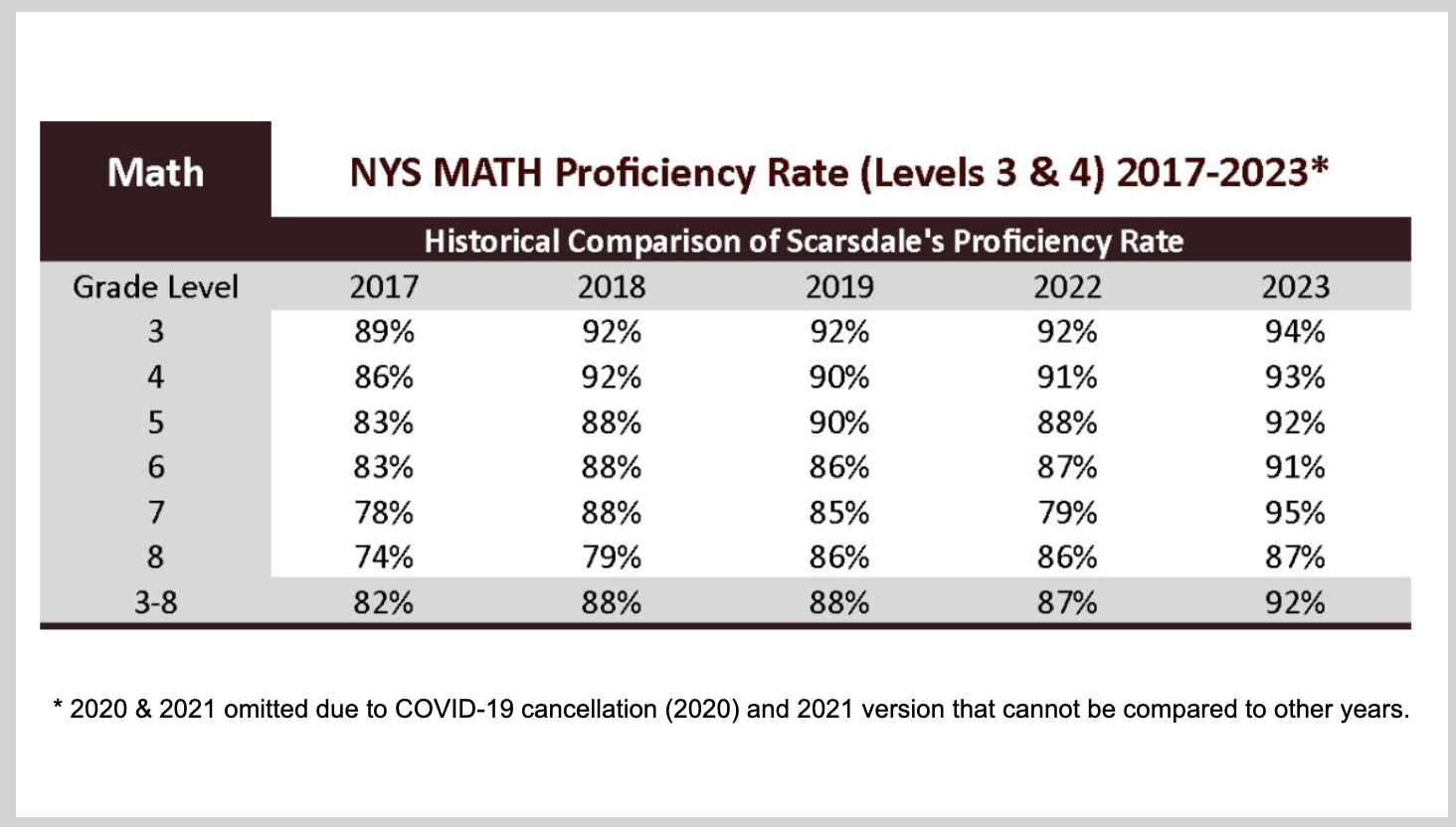 Math proficiency for grades 3-8.
Math proficiency for grades 3-8.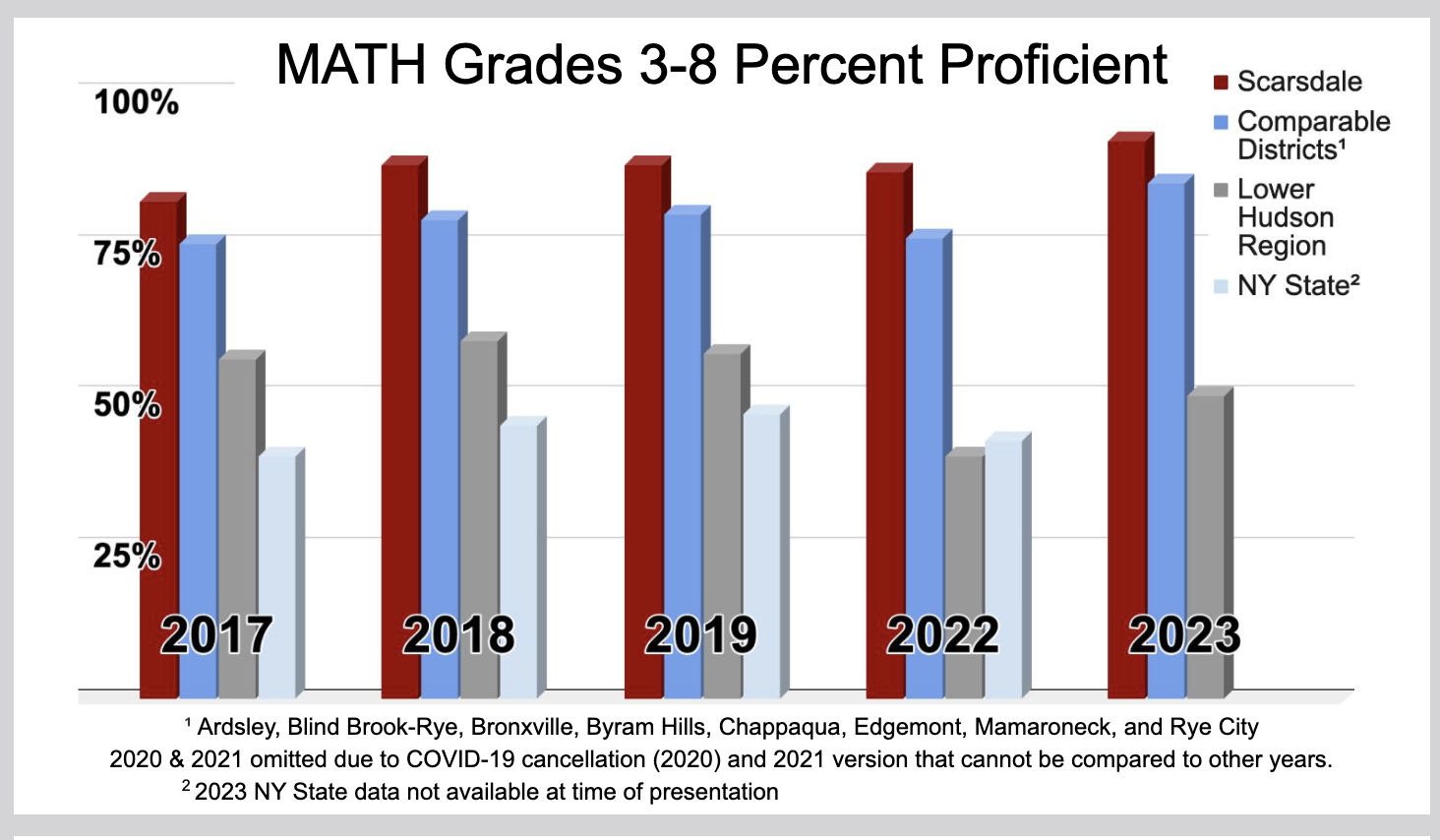 Math test results comparison to comparable districts and the lower Hudson Valley.
Math test results comparison to comparable districts and the lower Hudson Valley.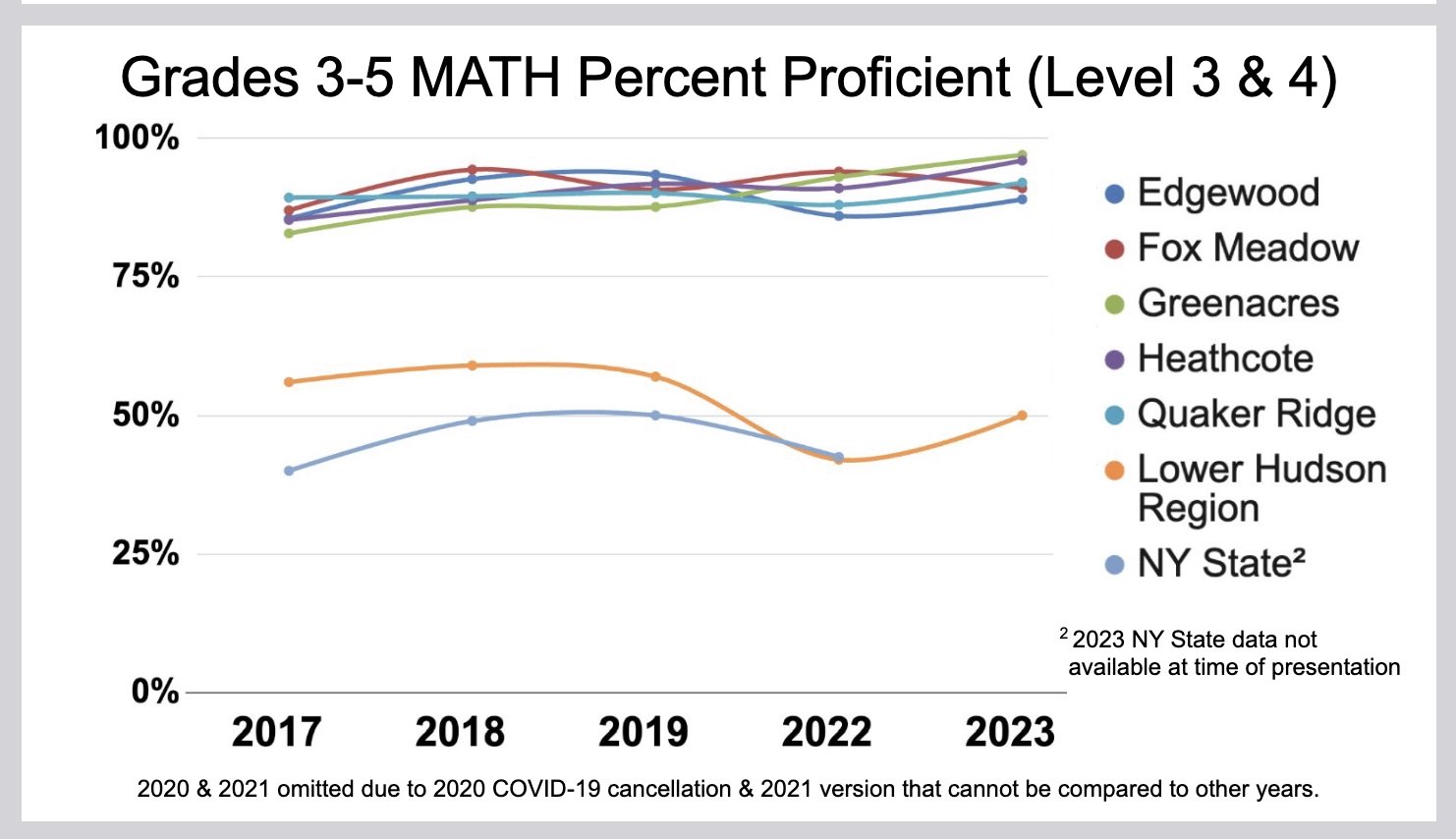 Math proficiency results by elementary school and year.
Math proficiency results by elementary school and year.







